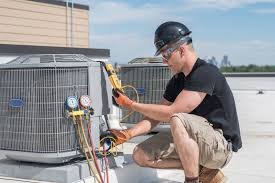When the seasons shift, your comfort at home depends on how well your heating and cooling system works. A system that runs all year long naturally wears down over time. If you don’t address small issues early, they can turn into expensive problems. That’s why it’s smart to watch for signs your system may need a tune-up before the next big weather change.
Uneven Temperatures Throughout the Home
If some rooms feel too warm while others are too cold, that’s a clear sign of an issue. It could mean your system is struggling to push air evenly through your home. Blocked vents, dirty filters, or aging components can all cause this problem. Before the next season begins, make sure your system can handle the changes in outdoor temperature. A tune-up can help balance airflow and improve comfort.
Higher Energy Bills
A sudden spike in your energy bill is another warning sign. If your usage habits haven’t changed but your bill has, your system may be working harder than it should. This could be due to dirty coils, clogged filters, or worn-out parts. Getting a professional inspection can identify the root cause. Fixing the problem early can save you money in the long run.
Strange Noises or Smells
Odd sounds like banging, grinding, or squealing should not be ignored. These noises often point to loose or broken parts inside your system. Ignoring them can lead to more damage and expensive repairs. Unusual smells, such as burning or musty odors, may signal dust buildup, mold, or wiring problems. A tune-up can catch and fix these issues before they worsen.
Weak or Inconsistent Airflow
If the air coming from your vents feels weak, it may be time for maintenance. Poor airflow can mean your blower motor is failing or that your ducts are blocked. These problems limit your system’s ability to heat or cool your home effectively. Regular HVAC Maintenance keeps components clean and running smoothly, which improves airflow and efficiency.
Frequent System Cycling
If your system turns on and off more often than usual, it’s not working as efficiently as it should. This issue, known as short cycling, wears out system parts faster. It can also make it harder to maintain a steady temperature. A tune-up can recalibrate your system and prevent short cycling. This helps extend the life of your heating and cooling equipment.
Thermostat Problems
If your thermostat doesn’t seem to reflect the actual room temperature, or if your system doesn’t respond to changes, you may have a problem. Sometimes, the thermostat itself needs to be replaced. Other times, the issue lies deeper in the system. In either case, a professional HVAC contractor can test your system, replace faulty components, and ensure your setup works correctly before extreme weather arrives.
Dust Buildup or Poor Air Quality
An increase in dust or allergy symptoms can mean your system isn’t filtering air as it should. Dirty filters, ducts, or coils can spread dust and allergens throughout your home. This affects not only comfort but also your health. A seasonal tune-up includes cleaning key parts of the system. That improves air quality and makes your home healthier.
System Age and Lack of Service History
If your system is more than 10 years old and hasn’t been serviced regularly, it’s time to get it checked. Older systems can still work well, but they need more attention to stay efficient. Without regular tune-ups, they are more likely to fail during extreme temperatures. Getting ahead of the problem before the season changes helps you avoid breakdowns when you need heating or cooling the most.
Visible Wear or Leaks
Check for signs of rust, moisture, or worn insulation around your unit. Water or refrigerant leaks not only reduce efficiency but can damage your home. These issues should be addressed quickly to prevent bigger repairs. Spotting physical signs early allows you to take action before they lead to system failure. A simple tune-up can fix small problems and prevent new ones from forming.
Final Thoughts
Your system works hard every season to keep your home comfortable. A tune-up before the seasons change keeps it running smoothly and avoids surprise breakdowns. Look out for the signs mentioned above and take action early. Preventative care saves money, improves comfort, and extends the life of your system. Don’t wait for your system to fail. A little maintenance now can keep you comfortable all year long.






